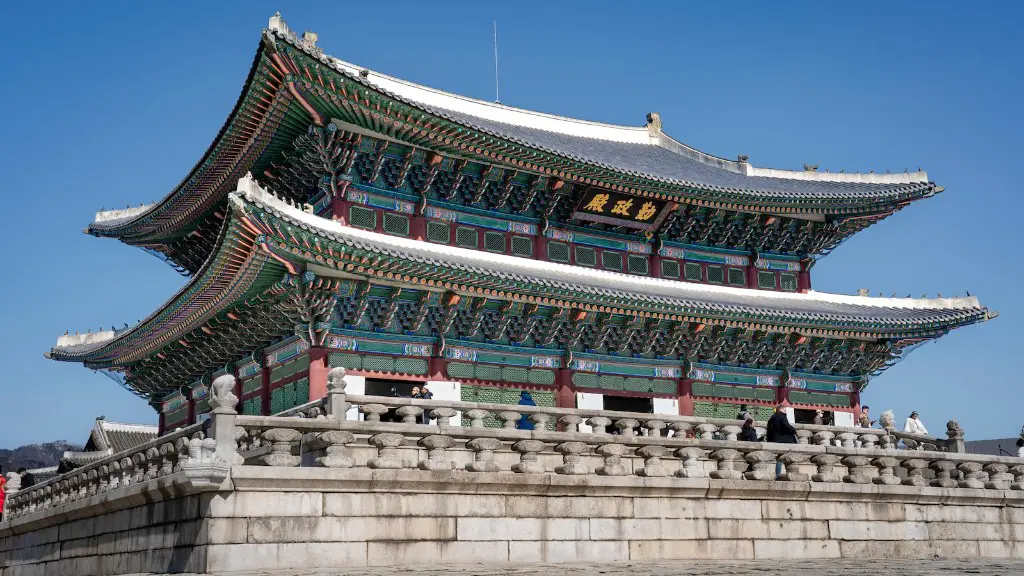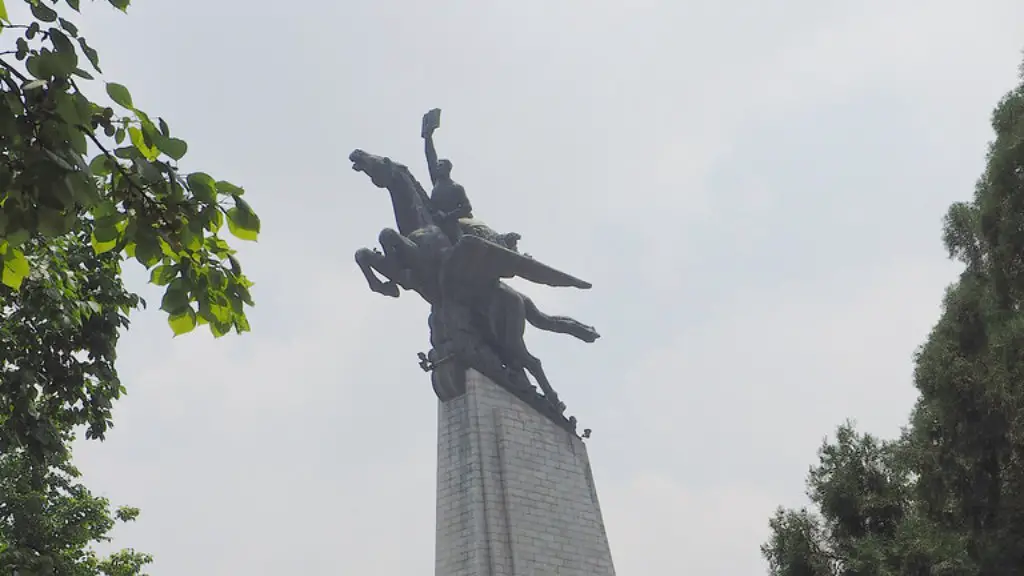North Korea’s Threats against the US: An Overview
North Korea has been threatening the US since the Korean War ended in 1953. In recent years, North Korea’s threats against the United States have been more vocal and frequent. The main points of contention between the two nations include North Korean leader Kim Jong Il’s nuclear ambitions, human rights violations and its missile and military capabilities.
The most direct and severe of North Korea’s sentiments are rooted in its attempts to gain recognition from the United States and the international community. Kim Jong Il believes that the only way for North Korea to achieve international recognition is through the use of the threat of military action and the development of weapons of mass destruction.
North Korea’s Missile and Nuclear Programs
The North Korean government has been investing heavily in military and weapons programs, most of which are unmonitored and restricted from outsiders. It is believed that the North Korean government is using these resources to develop its nuclear Capability and a ballistic missile system.
The International Atomic Energy Agency (IAEA) has documented a number of instances over the past decade where North Korea has test-fired a number of medium to long-range ballistic missiles, including the Taepodong-1, the Taepodong-2 and the Musudan.
Additionally, the North Korean government is believed to be in the process of developing a nuclear weapon. The United States, China, Russia, Japan, South Korea and the European Union have all expressed grave concerns about the potential for a nuclear-armed North Korea.
Recent North Korean Threats
Since the beginning of 2013, North Korea has made numerous threats against the United States, ranging from threats of a pre-emptive nuclear attack, to all-out war. In April 2013, the North Korean government warned of a “pre-emptive and offensive nuclear strike” against the United States, citing “hostile policies” from the US.
The threats have persisted despite efforts from the United Nations Security Council for a diplomatic solution, with North Korea’s Foreign Minister Ri Su Yong warning on several separate occasions in 2014 that the United States would face “unimaginable” consequences if it were to “provoke” North Korea.
The US Response
The United States has taken a number of steps to ensure its safety, including increased military presence in South Korea and Japan, and the deployment of the THAAD missile system in response to North Korea’s missile and nuclear threats.
In addition to these measures, the United States has imposed economic sanctions on the nation in an effort to dissuade it from pursuing its nuclear program. Despite these efforts, the North Korean government has continued to threaten the United States and the international community.
International Community
The international community has expressed its concern over North Korea’s threats through a series of UN resolutions, which have been largely ignored by the North Korean government. The UN Security Council has imposed several rounds of sanctions on North Korea in response to its nuclear activities, but these sanctions have proven largely ineffective in dissuading the North Korean government from pursuing its ambitions.
The majority of countries in the international community have condemned North Korea’s actions, but few have offered tangible solutions for dealing with the rogue state. The international community has expressed its willingness to work towards a diplomatic solution to the crisis, but the two sides have yet to reach an agreement.
China’s Role
China has been a key player in the North Korean crisis, as it is seen by many as the only nation that has the ability to influence the North Korean government. China is North Korea’s largest trading partner, and experts believe that if China cuts off its economic assistance to North Korea, it would have a dramatic impact on the country’s ability to pursue its goals.
On numerous occasions, China has urged North Korea to rein in its rhetoric and to refrain from escalating the situation. However, China has refrained from taking more concrete steps, such as cutting off economic assistance or tightening sanctions.
Impacts of Sanctions
The sanctions imposed by the United Nations have had a significant impact on the North Korean economy. The sanctions have led to a shortage of goods and have caused a spike in the cost of living for the North Korean people.
The North Korean government has attempted to use the international sanctions as a rallying cry for the North Korean people, claiming that the sanctions are a result of the United States’ “hostile policies”, and urging the people to rally around the government.
Despite the increased economic hardship, the North Korean government has shown no signs of backing down on its nuclear ambitions and continues to threaten the United States.
Efforts to Deescalate the Crisis
Despite the current stalemate between North Korea and the United States, there have been several efforts to deescalate the crisis. In 2014, the United States and North Korea agreed to a “leap day” agreement to freeze nuclear testing and other military activity, but this agreement was short-lived.
In recent years, there have been talks between the two sides to restart the Six-Party Talks, which involve the United States, China, Russia, Japan, South Korea and North Korea. These talks have failed to make significant headway due to the two sides’ diverging stances on the issue of denuclearization.
Additionally, there have been a number of diplomatic visits between high-level US and North Korean officials in both Washington, DC and Pyongyang to discuss diplomatic solutions to the conflict. These talks have so far failed to produce tangible results and the stalemate continues.
UN Resolutions
The United Nations Security Council has passed a series of resolutions condemning North Korea’s nuclear activities and urging it to comply with international norms. However, these resolutions have had little effect on North Korea’s behavior, as the nation has consistently ignored the international community’s calls for restraint and continues to pursue its nuclear ambitions.
The United Nations General Assembly has also condemned North Korea’s nuclear activities and has passed resolutions that would limit North Korea’s access to weapons and resources. However, these resolutions have also proven ineffective, as North Korea has continued to acquire materials for its nuclear program and missile tests.
US Military Presence
The United States has maintained a military presence in South Korea since the end of the Korean War and has deployed a number of missile defense systems in the region. The US military has conducted joint military exercises with South Korea and has increased its number of troops in the region in response to North Korea’s nuclear threats.
The United States has also deployed the THAAD missile defense system in South Korea, which is designed to intercept and shoot down incoming missiles. In addition to military forces, the United States has also strengthened economic ties with South Korea and has signed a number of bilateral trade agreements with the nation.
Impact on Regional Stability
The North Korean crisis has had a significant impact on regional stability in East Asia. The North Korean government has consistently refused to comply with international norms, putting its regional neighbors on edge.
Notably, South Korea has taken a number of steps to strengthen its defense capability in response to North Korea’s threats, such as establishing a special task force to counter North Korean aggression and investing heavily in defense technology.
Additionally, Japan, South Korea, and other regional countries have tightened security and increased military spending in Northeastern Asia in order to safeguard against potential North Korean attacks.


